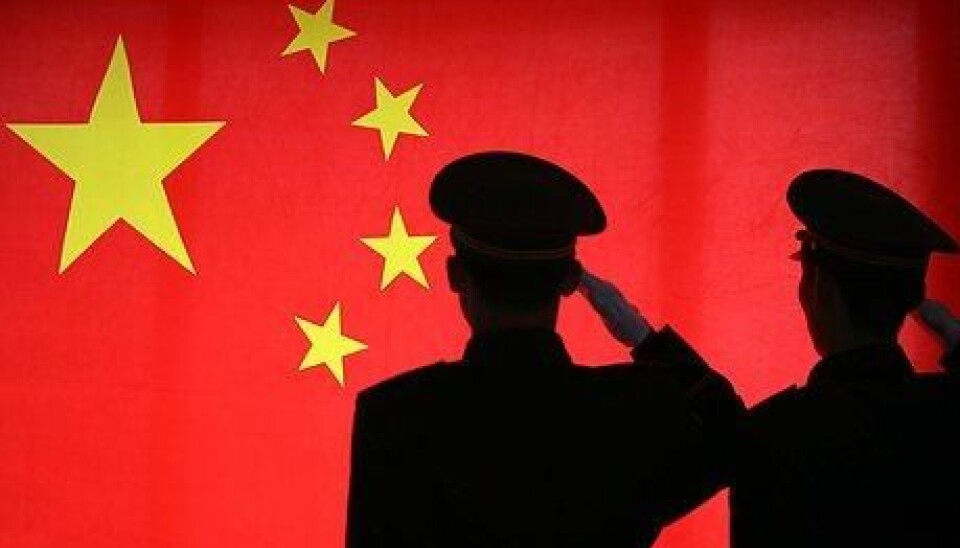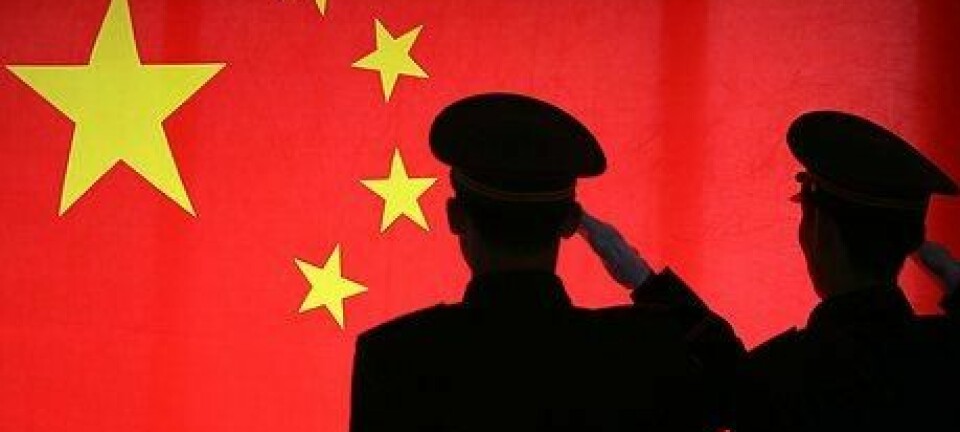
How China will meet the world
The Chinese are coming – but what do they want? New Danish research shows that China’s future foreign policy will depend very closely on how the Chinese picture themselves.
China is a giant. There are 1.3 billion Chinese and their economic, political and military power has grown sharply in recent years.
This means it is very important to examine what we can expect of China’s foreign policies in the future. However, this is difficult to determine, as the Chinese regime is dominated by only eight or nine people (see the factbox), and no-one knows what they really want.
According to Andreas Forsby of the Danish Institute for International Studies (DIIS), a good starting point for understanding China’s foreign policies is examining the Chinese perception of reality. He has written a scientific article about how the way the Chinese regard themselves affects the country’s foreign policies.
China’s four philosophies
Forsby believes that the way the Chinese regard themselves will help us understand the way they regard the rest of the world. The researcher says there are four Chinese perceptions of reality – philosophies or identities – that can contribute to defining China’s foreign policies:

1. China as an independent civilisation.
2. The legacy of Confucianism.
3. The authoritarian centralism.
4. Chinese nationalism.
China as an independent civilisation
Most Chinese look on China as a 3,000-year-old independent civilisation.
“The Chinese have maintained their special cultural characteristics, despite invasions,” says Forsby. “For example, when the Mongols invaded China in the 11th century, the Mongols did not repress the Chinese identity – on the contrary, the Mongols became Chinese.”
He adds, “The Chinese are very proud of their identity as a separate civilisation. They’re proud that China invented gunpowder and printing before the west.”
The consequence of this identity is that the Chinese often feel themselves superior to neighbouring countries in particular. For example, the Chinese regime believes that China has a right to 80-90 percent of the South China Sea, although Malaya, the Philippines, Vietnam, Taiwan and Brunei all border on to the same ocean.
Confucianism removes the spotlight from individuals
The researcher says another factor influencing Chinese foreign policies is Confucianism, a philosophy derived from Confucius, who lived about 500 years before the birth of Christ.
Confucianism has changed since, says Forsby, but its core remains the same.
“The dominant belief is that the individual exists for the collective, for society as a greater entity,” he says. “Order and harmony are the important factors.”
A present-day example of the Confucian identity is found in the difficulty the Chinese have in accepting human rights where the individual’s rights weigh most.
This trend was obvious in 1989, when a sea of people demonstrated for freedom at Tiananmen Square (‘Square of Heavenly Peace’) in Beijing: the Chinese regime cracked down on the protestors so brutally that it is often called a massacre in the west.
A more recent instance of how China’s lack of giving priority to individuals’ rights affects the country’s foreign policies is China’s decision to cut off diplomatic relations with Norway in December 2010 after the Norwegian Nobel Prize committee decided to award the Nobel Prize for Peace to Liu Xiaobo, the author, human rights activist and dissident.
Top-down central control
Forsby sees what he calls China’s authoritarian centralism as another important factor in understanding the country’s foreign policies, and as another problem for human rights.
He says it is ‘authoritarian’ because the Chinese have always been accustomed to top-down control, and ‘centralist’, because the Chinese powers-that-be have traditionally not allowed the provinces to decide for themselves, but have ruled them from the state bureaucracy in Beijing – China’s political centre.
The researcher names Tibet as a good example of this tendency. According to China, Tibet is Chinese. But ask Tibetans and they will say that Tibet is an independent country. The Buddhist leader Dalai Lama may have given up the fight for a free Tibet, says Forsby, but he still fights for a Tibet with far greater political and cultural autonomy than today.
But the powers-that-be in Beijing have tried for years to turn Tibet into a part of China, often using violent, authoritarian means.
Han nationalism changed Tibet
Han nationalism is also an important factor defining Chinese foreign policies, says Forsby.
Most Chinese believe not only that China is something special because of its history, but also that they are part of a special people – the Han Chinese, an identity so important that 90 percent of Chinese are officially Han.
Tibet is again a good example of how this impacts on Chinese foreign policies. The Chinese leaders moved Han Chinese to Tibet to change the Tibetan population so it would become more Chinese – and this has happened.
Identity almost as important as economics
So what does all this mean for our understanding of Chinese foreign policies?
“We will certainly not get the liberal regime everyone thought possible in the 1990s – we’ll get a Chinese superpower that will retain its traditions and identity,” says Forsby. “China’s interests are not just about power, economy and resources, but very largely also about how China regards itself and its position in the world. This will not necessarily make China’s ascent more filled with conflicts, but it is a way of conducting foreign policies that we are not accustomed to in the west.”
Read the article in Danish at videnskab.dk
Translated by: Michael de Laine
Scientific links
- An End to Harmony? The Rise of a Sino-Centric China. Political Perspectives 2011, volume 5 (3), 5-26








